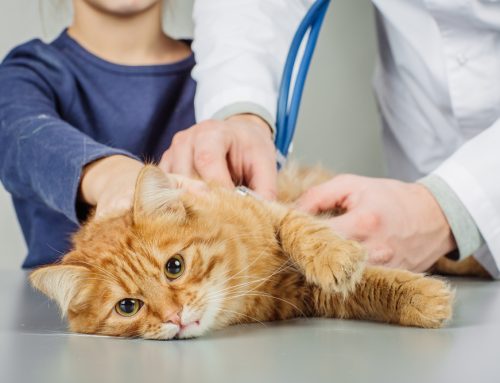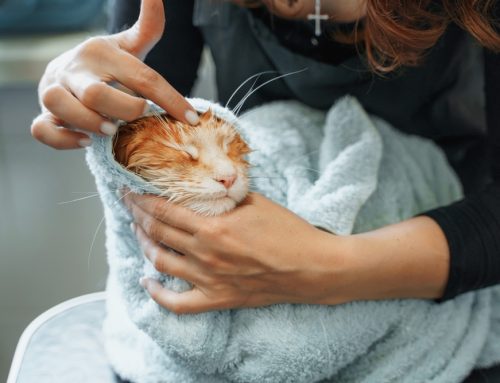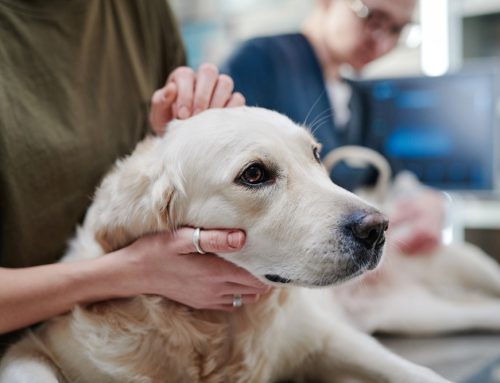If you’re like us, you can’t wait for summer. Warm, long, sunny days are ideal for outdoor activities, gatherings, and patio meals and, naturally, we want to include our pets in the festivities. However, before you bring your pet along, consider some of summer’s safety risks to your pet’s health and wellbeing. The Lebanon Animal Hospital team shares tips for keeping pets safe throughout the summer season.
#1: Don’t leave pets unattended in cars or outdoors
A vehicle can reach nearly 110 degrees after an hour on a 70-degree day. Pets left inside can quickly succumb to heatstroke, which can lead to organ failure or death in only a few hours or days. Despite prompt cooling and veterinary care, a pet with heatstroke still is at a high risk of dying in the next few days, so prevention is the best way to beat the heat. The same can happen to pets who spend too much time outside in sunny areas without adequate access to water and shade.
#2: Avoid exercising pets during the hottest parts of the day
Early morning and late evening are the best times to spend outdoors, especially if you have a particularly heat-intolerant pet. Short-nosed, overweight, and older pets, and those with heart, lung, or endocrine conditions, are at the highest risk for heat-related illness.
#3: Prepare pets for storms and fireworks
Two-thirds of dogs have noise aversion, which causes fear, anxiety, and panic in response to specific noises. The most common triggers are fireworks and thunderstorms, which make the summer season particularly treacherous. Talk to our veterinary team about your pet’s phobic noise response to see if anti-anxiety medications may help. We may also recommend several general calming strategies, such as providing a cozy, quiet retreat, playing calming music, using pheromones, and placing an anxiety wrap or eye cover.
#4: Use effective flea, tick, and heartworm preventives
Fleas, ticks, and heartworm-carrying mosquitoes are most active during the warm summer months. These pests are more than simply nuisances—they can also transmit deadly diseases to your pet. Ensure your pet receives the best protection with a monthly prevention product or product combination that controls all three parasites. Talk to our team about product options if you aren’t sure where to start.
#5: Supervise pets around water
Pools, rivers, ponds, and lakes can provide water-loving dogs with great exercise and a good way to cool down on a hot day, but they also present a drowning hazard. While most dogs in water will instinctively dog paddle, inexperienced swimmers may panic and will need help or instruction at first. The most water-loving dog can swim out too far or get tired and risk drowning, so always supervise them and use flotation devices as needed.
#6: Update your pet’s ID tag and microchip information
More pets go missing during summer than in other season because they spend more time outside, become spooked by fireworks or storms, or get loose during a party or gathering at their home. Ensure your pet’s ID tag is legible and up-to-date, and contact your pet’s microchip company to ensure your information is current. If your pet is not microchipped, schedule a quick outpatient visit for the quick procedure.
#7: Protect pets from yard and garden toxins
Fertilizers and insecticides and many common decorative plants are toxic to pets. Consult the ASPCA list of toxic and non-toxic plants before you do any landscaping, and keep lawn chemicals stored out of your pet’s reach. Also, do not use cocoa bean hull mulch, which contains the same toxic compounds as chocolate.
#8: Monitor pets for allergy symptoms

Summer is peak allergy season for many sensitive pets. If your pet has previously dealt with seasonal red, itchy skin, hair loss, or ear infections, chances are high the problem will appear again this year. Talk to our team about allergy treatments when you notice the first signs. Pets without an allergy history can develop new allergies at any time, and many pets also react to insect bites or stings, so keep a close eye on your pet.
Whatever your summer has in store, you can rest easy about your pet’s safety if you follow the Lebanon Animal Hospital team’s summer safety tips. Call us to schedule a wellness checkup, parasite screening, anxiety consultation, or microchip placement to prepare your pet for a successful summer season.








Leave A Comment